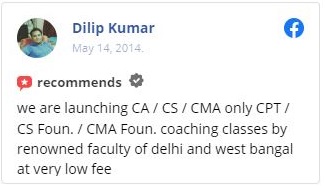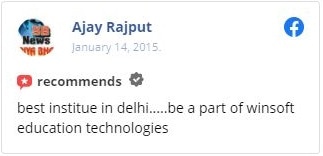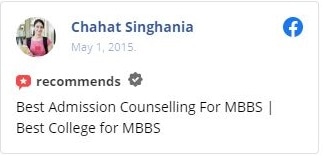M.Tech Admission process from Top Indian Universities: Admission Process, Eligibility Criteria, Syllabus, Fees, Duration, Scope, and Career Opportunities
Master of Technology (M.Tech): Overview
The admission process for a Master of Technology (M.Tech) program typically involves several key steps and requirements.
1. Eligibility Criteria
- Educational Qualification: Candidates must have a Bachelor’s degree in Engineering/Technology (B.Tech/B.E.) or a related field from a recognized university.
- Minimum Marks: Most institutions require a minimum aggregate score of 50-60% in the undergraduate program.
2. Entrance Exams
- Many universities and colleges require candidates to qualify for entrance exams such as:
- GATE (Graduate Aptitude Test in Engineering): The most common entrance exam for M.Tech admissions in India.
- Some universities may conduct their own entrance exams or consider other exams like PGCET or TANCET.
3. Application Process
- Online Application: Candidates need to fill out the application form for the chosen universities and pay the application fee.
- Documentation: Required documents typically include:
- Mark sheets of previous degrees
- GATE scorecard (if applicable)
- Identity proof
- Passport-sized photographs
- Recommendation letters (if required)
4. Merit List and Counseling
- After entrance exams, universities will release merit lists based on exam scores, undergraduate performance, and other criteria.
- Candidates will then participate in counseling sessions where they can choose their specialization and college based on their rank.
5. Admission Confirmation
- Once a seat is allotted, candidates must confirm their admission by paying the requisite fee and submitting any additional documents required by the institution.
6. Course Duration
- M.Tech programs generally have a duration of 2 years, divided into 4 semesters.
M.Tech (Master of Technology) Eligibility Criteria
To pursue a Master of Technology (M.Tech) degree, candidates must meet specific eligibility requirements. Here are the common criteria:
1. Educational Qualification
- Bachelor’s Degree: Candidates should have a Bachelor’s degree in Engineering or Technology (B.Tech/B.E.) from a recognized university or institution.
- Some universities may also accept graduates from related fields like M.Sc. in Computer Science or M.Sc. in Electronics.
2. Minimum Marks
- Most institutions require candidates to have a minimum aggregate score of 50–60% in their undergraduate program. This percentage may vary depending on the university and specialization.
3. Entrance Exam
Many universities require candidates to qualify for entrance exams such as:
- GATE (Graduate Aptitude Test in Engineering): Widely accepted for M.Tech admissions across India.
- Some universities conduct their own entrance exams (e.g., PGCET, TANCET) or may accept scores from other exams.
4. Age Limit
- Generally, there is no upper age limit for M.Tech admissions, but specific institutions may have their own policies.
5. Work Experience (Optional)
- While not mandatory, some institutions may prefer or give weight to candidates with relevant work experience in the field of study.
6. Additional Requirements
- Some universities may require letters of recommendation, personal statements, or interviews as part of the application process.
Conclusion
It’s essential for prospective students to check the specific eligibility criteria of the universities they are interested in, as these can vary. Meeting the eligibility requirements is the first step toward securing admission in M.Tech programs.
M.Tech (Master of Technology) Admission Process
The admission process for a Master of Technology (M.Tech) program generally involves several key steps.
1. Eligibility Verification
- Ensure you meet the eligibility criteria, including having a relevant Bachelor’s degree (B.Tech/B.E.) and the required minimum marks (typically 50-60%).
2. Entrance Exams
- GATE: Most institutions accept scores from the Graduate Aptitude Test in Engineering (GATE). Register for the exam, prepare thoroughly, and take the test.
- Other Exams: Some universities conduct their own entrance tests (e.g., PGCET, TANCET). Check the specific requirements for each institution.
3. Application Process
- Online Application: Fill out the application form for your chosen universities, which can usually be done online.
- Application Fee: Pay the required application fee as per the institution’s guidelines.
- Required Documents: Prepare and submit necessary documents, including:
- Bachelor’s degree mark sheets
- GATE scorecard (if applicable)
- Identity proof
- Passport-sized photographs
- Recommendation letters (if required)
4. Merit List Publication
- After the entrance exams, universities will release merit lists based on scores, undergraduate performance, and other criteria.
5. Counseling Process
- Candidates whose names appear on the merit list will be called for counseling.
- During counseling, you can select your preferred specialization and institution based on your rank and availability of seats.
6. Admission Confirmation
- Once a seat is allocated, confirm your admission by paying the admission fee and submitting any additional required documents.
7. Course Commencement
- After completing all formalities, you can join the program when classes commence.
Conclusion
The M.Tech admission process is competitive and requires careful planning and preparation. It’s crucial to stay updated on specific requirements and deadlines for the institutions you wish to apply to. Proper preparation for entrance exams and thorough research on universities can enhance your chances of securing admission.
M.Tech (Master of Technology) Courses & Fees
Maharshi Dayanand University, [Mdu] Rohtak M.Tech Courses List And Fees Details
Course | Duration | Total Tuition Fees |
Master of Technology [M.Tech] (Biotechnology) | 2 Years | ₹1.23 Lakh |
Master of Technology [M.Tech] (Computer Science and Engineering) | 2 Years | ₹1.23 Lakh |
Master of Technology [M.Tech] (Electronics and Communication Engineering) | 2 Years | ₹1.23 Lakh |
Master of Technology [M.Tech] (Manufacturing and Automation) | 2 Years | ₹1.23 Lakh |
Master of Technology [M.Tech] (Mechanical Engineering) | 2 Years | ₹1.23 Lakh |
Master of Technology [M.Tech] (Software Engineering) | 2 Years | ₹1.23 Lakh |
M.Tech (Master of Technology) Scope and Career Opportunities
The M.Tech degree opens up numerous avenues for advanced career opportunities and specialization in various fields of engineering and technology. Here’s a look at the scope and potential career paths available to M.Tech graduates:
M.Tech (Master of Technology): Scope
Specialization:
- M.Tech programs offer various specializations, including Computer Science, Data Science, Software Engineering, Structural Engineering, VLSI Design, Network Engineering, and more, allowing students to focus on their areas of interest.
- M.Tech programs offer various specializations, including Computer Science, Data Science, Software Engineering, Structural Engineering, VLSI Design, Network Engineering, and more, allowing students to focus on their areas of interest.
Research and Development:
- M.Tech graduates can engage in research and development roles, contributing to innovation and technological advancements in industries and academia.
- M.Tech graduates can engage in research and development roles, contributing to innovation and technological advancements in industries and academia.
Higher Studies:
- Graduates can pursue doctoral studies (Ph.D.) in their respective fields, leading to careers in academia or advanced research positions.
- Graduates can pursue doctoral studies (Ph.D.) in their respective fields, leading to careers in academia or advanced research positions.
Industry Demand:
- The growing technological landscape ensures a consistent demand for skilled professionals with advanced knowledge and specialized skills.
- The growing technological landscape ensures a consistent demand for skilled professionals with advanced knowledge and specialized skills.
M.Tech (Master of Technology) Career Opportunities
Information Technology:
- Roles: Software Engineer, Systems Analyst, Data Scientist, Cloud Solutions Architect.
- Companies: Google, Amazon, Microsoft, Infosys, TCS.
Core Engineering:
- Roles: Design Engineer, Project Manager, Research Engineer, Quality Assurance Engineer.
- Companies: L&T, Tata Steel, Siemens, GE, BHEL.
Telecommunications:
- Roles: Network Engineer, Telecom Analyst, Wireless Communication Engineer.
- Companies: Ericsson, Vodafone, Airtel, Nokia.
Academia and Research:
- Positions as lecturers or researchers in engineering colleges and universities or roles in research organizations.
- Positions as lecturers or researchers in engineering colleges and universities or roles in research organizations.
Consultancy:
- Working as a technical consultant, providing expertise to businesses on technology implementation and project management.
- Working as a technical consultant, providing expertise to businesses on technology implementation and project management.
Entrepreneurship:
- Many M.Tech graduates opt to start their own tech companies or consultancies, leveraging their advanced skills to develop innovative solutions.
- Many M.Tech graduates opt to start their own tech companies or consultancies, leveraging their advanced skills to develop innovative solutions.
Conclusion
The M.Tech degree significantly enhances career prospects, offering a blend of advanced knowledge and practical skills. With the rapid evolution of technology, M.Tech graduates are well-positioned to take on leadership roles, contribute to research, and drive innovation in their respective fields.






























